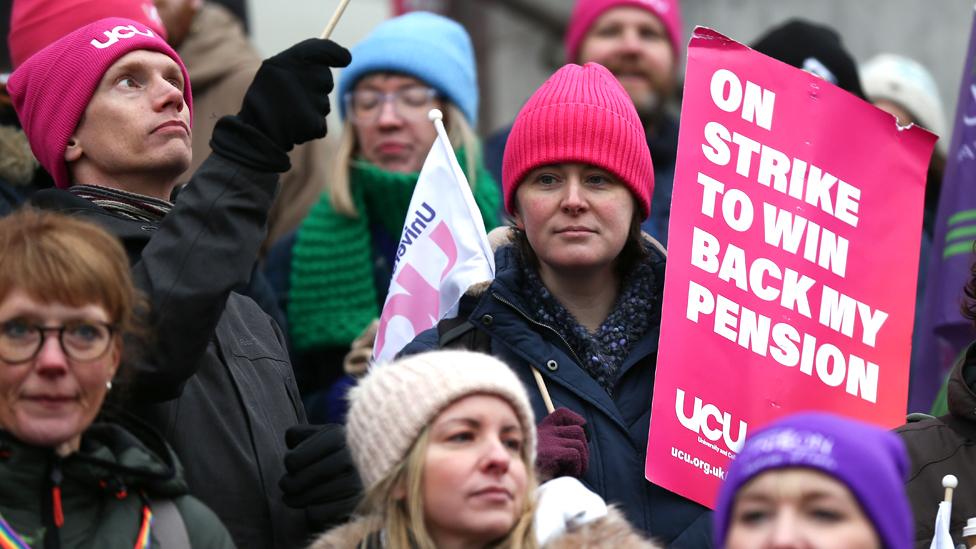University strikes: How the marking boycott affects Cambridge
- Published
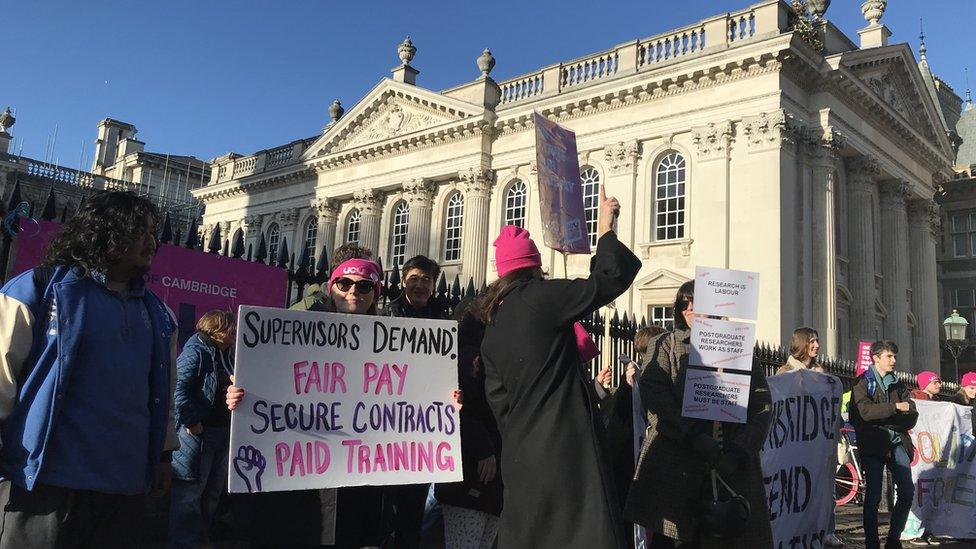
Students join staff on strike in Cambridge over pay and working conditions
Members of the University and College Union (UCU) are continuing a marking and assessment boycott over pay and working conditions. The BBC spoke to students and staff at the University of Cambridge about how the situation is being handled there.
University students at 145 UK institutions are affected, as a dispute about staff pay and working conditions continues.
The action by the UCU covers all marking and assessments, as well as related work such as exam invigilation.
Following three days of strike action in November, the union had announced 18 days of industrial action during February and March, but called some off of those dates after making "significant progress across a range of issues".
The marking boycott began on 20 April and will carry on until employers make an improved offer, the UCU says.

'Workloads are explosive'
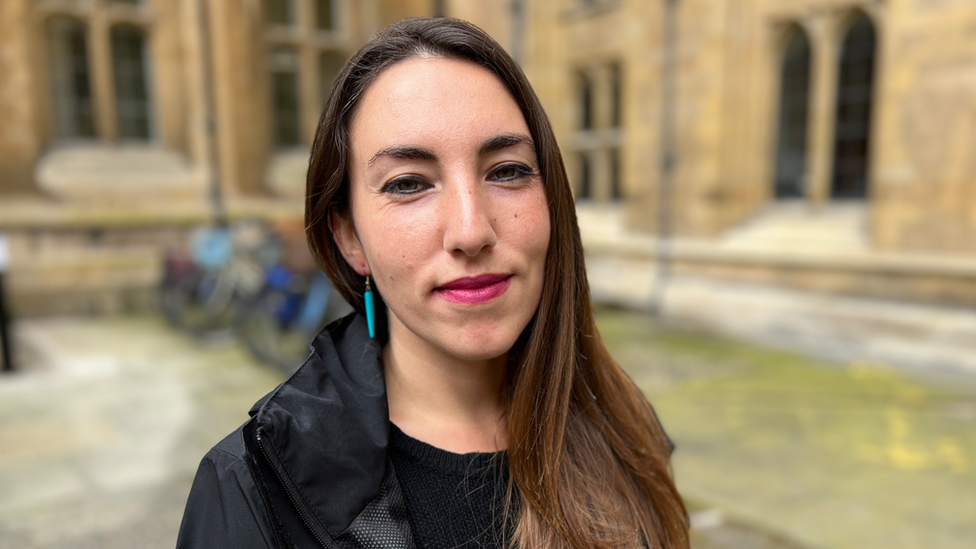
Lorena Gazzotti is the vice president of the Cambridge branch of the UCU
"Employers tabled an offer that UCU members rejected because it was way below inflation and there were no firm commitments on workloads or pay equality gaps - so we had no choice but to escalate to a marking and assessment boycott," says Lorena Gazzotti, vice-president of the Cambridge UCU.
"I want to highlight that I do not know a single member who in good faith wants to do this, but it is necessary.
"Employers are not coming to the table with a reasonable offer."
She said staff were having to work every weekend with no extra pay.
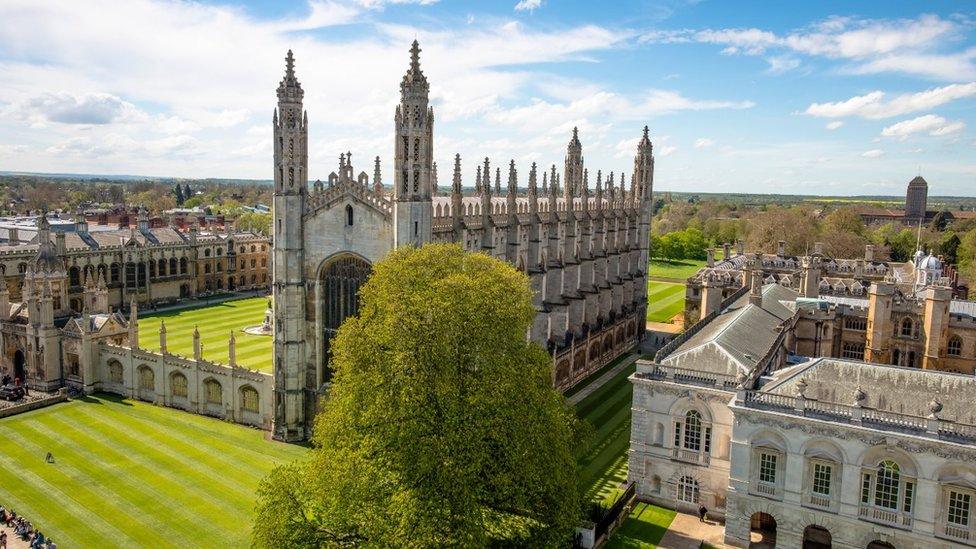
The university acknowledged the high cost of living and property in Cambridge, but added that it was a national dispute
"We can no longer pretend that the situation in our sector is normal," adds Ms Gazzotti.
"Casualisation is rife. Staff turnover is high. Workloads are explosive.
"Students are worried about the impact of the marking and assessment boycott, but they are also very understanding about why staff have been obliged to take this measure.
"Exams will be marked when the dispute is settled. So it is more of a delay. The clock is already ticking."

'There is common ground'
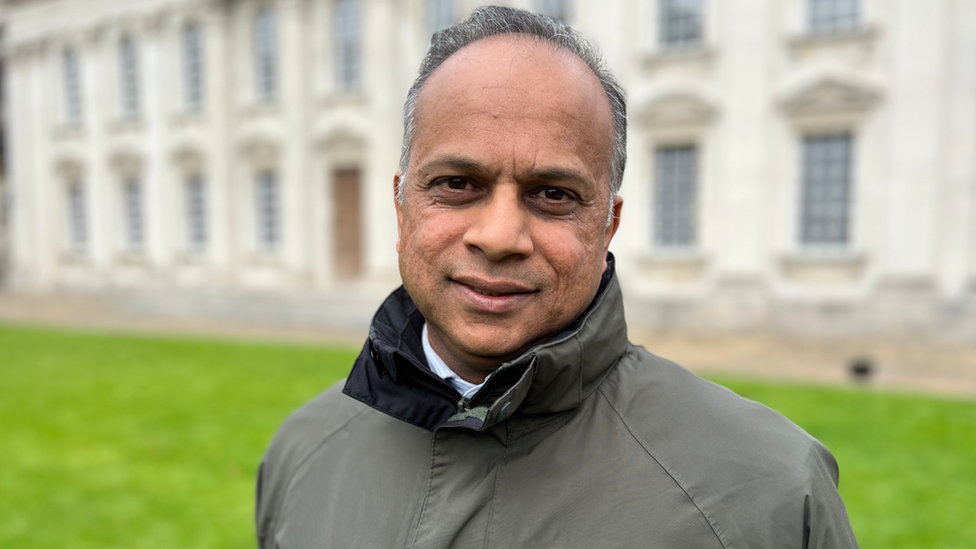
Prof Bhaskar Vira says both sides in the dispute need to "keep talking"
The UCU is negotiating with the Universities and College Employers Association (UCEA), which recommends pay scales and conditions for university staff, although individual universities, or colleges in Cambridge's case, are not obliged to accept them.
Prof Bhaskar Vira is the pro vice-chancellor for education at the University of Cambridge.
"The students who are going through this industrial action are students whose education has been disrupted over the last few years, particularly with the pandemic, so it's our responsibility to look after them as much as we can," he says.
"My focus is to try to get the maximum amount of marking done for the maximum number of students.
"Exams will be held on schedule, but there is a likelihood that marking will be delayed, which will have an impact on results.
"Industrial action has not been universal across all departments - some are more impacted than others.
"I know our colleagues value our students' progress as much as we do.
"The action on the pensions issue has now been suspended which suggests there is common ground.
"It's really important that we get together and keep talking. Locally in Cambridge we are trying to make progress where we can - but this is a national dispute."

'There's a lack of clarity'
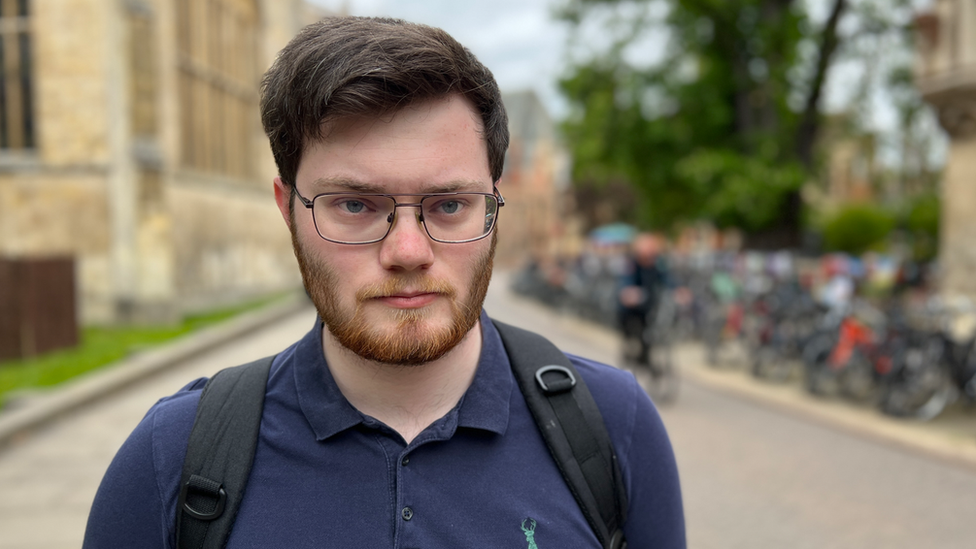
Politics student Ewan says there has been a lack of clarity from the central university
Ewan, 21, is studying politics at Cambridge.
"It's exam term and there's real uncertainty when, or if, my exams will get marked. I've also got coursework and I haven't got a clue what's going on with that," he says.
"But even beyond the strikes that are happening this term, this has been a problem for an entire year, if not the past three years I've been here.
"There's been a lack of clarity from the faculty, and a strong sense of confusion.
"It doesn't feel like much is changing. The Senate House and the pro vice-chancellor might be negotiating hard, but it doesn't feel like it trickles down to the bottom of the food chain.
"I do have sympathy to a degree, but there comes a point where it becomes overbearing.
"I want to be able to get out of here, get a good job and feel confident in my own education."

'We're in the dark'
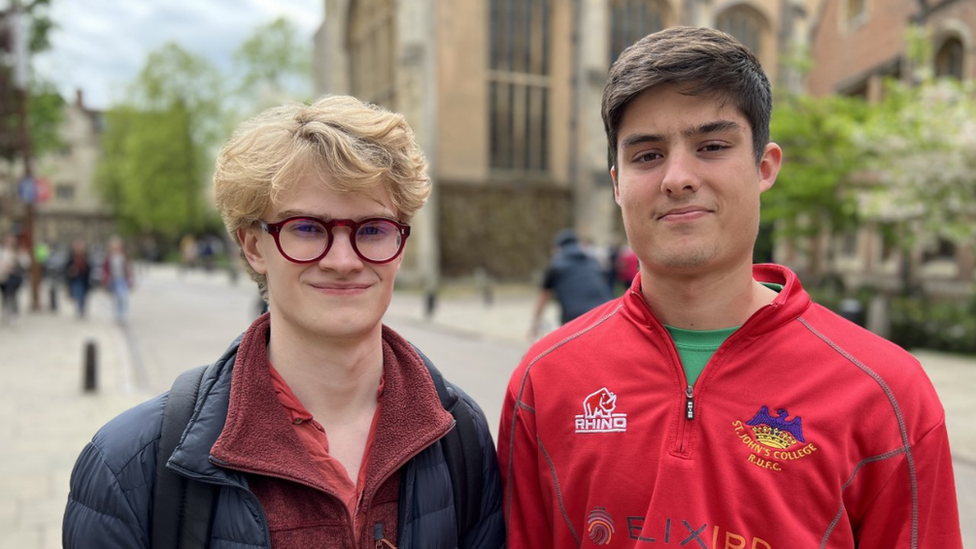
Linguistics students Max and Tom fear the strikes will have an impact on the value of their degrees
Max, 19, and Tom, 20 are both studying linguistics at Cambridge.
"The general advice is to keep going as if the strikes are not happening," Max says.
"If external examiners mark as well, some [students] are talking about whether that would impact the value of a degree from Cambridge if nobody at Cambridge has even seen your papers and your scripts.
"It's impossible to know. We may see results later than we expected.
"I do sympathise with them, but we had to do our A levels during Covid, so to have other things affecting us further down the line, it just drags on."
"We're a bit in the dark," Tom adds.
"I've heard of other subjects being slightly more affected - it all depends on whether there's any effect on our grades. Hopefully none.
"We need recognition for our key workers and now it's the same situation. It's all been a knock-on effect of the pandemic."

Find BBC News: East of England on Facebook, external, Instagram, external and Twitter, external. If you have a story suggestion email eastofenglandnews@bbc.co.uk, external
- Published20 October 2023
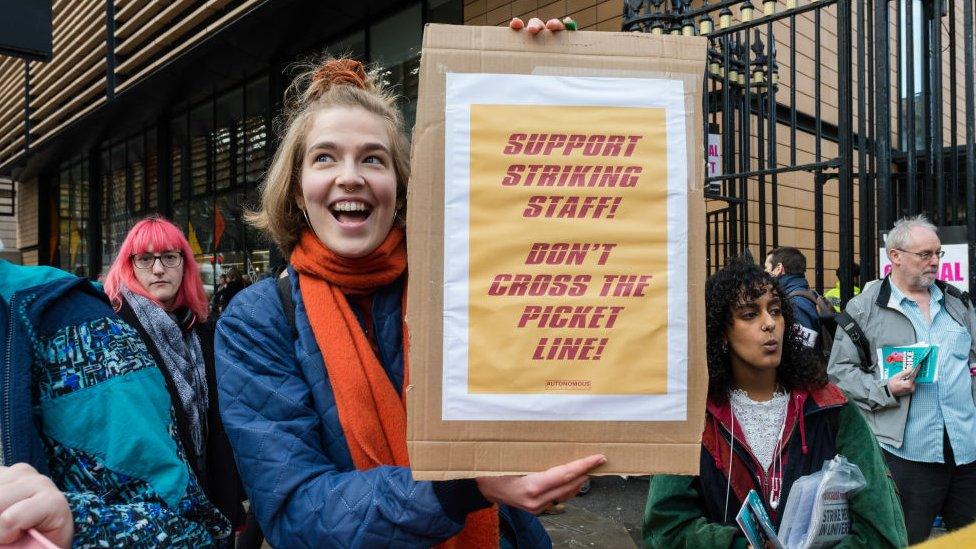
- Published3 April 2023
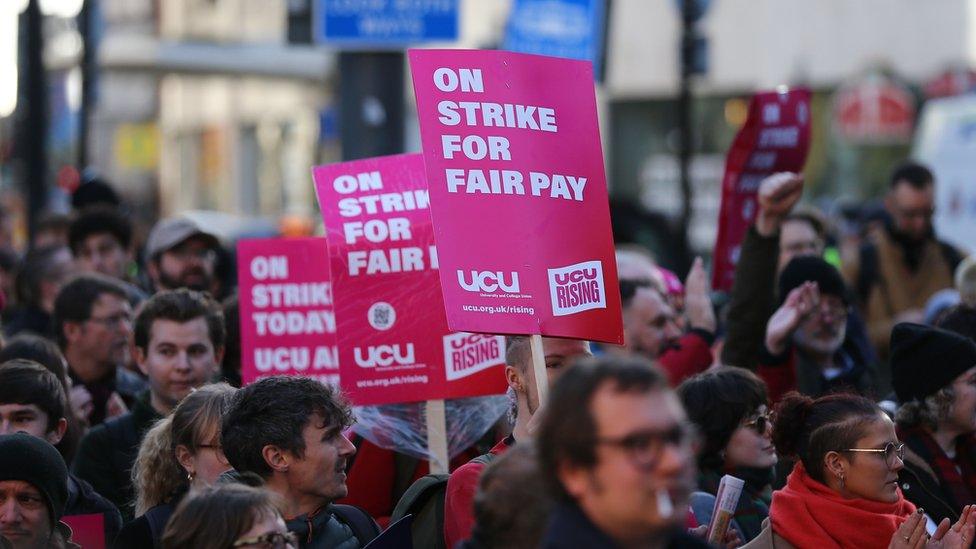
- Published12 January 2023
